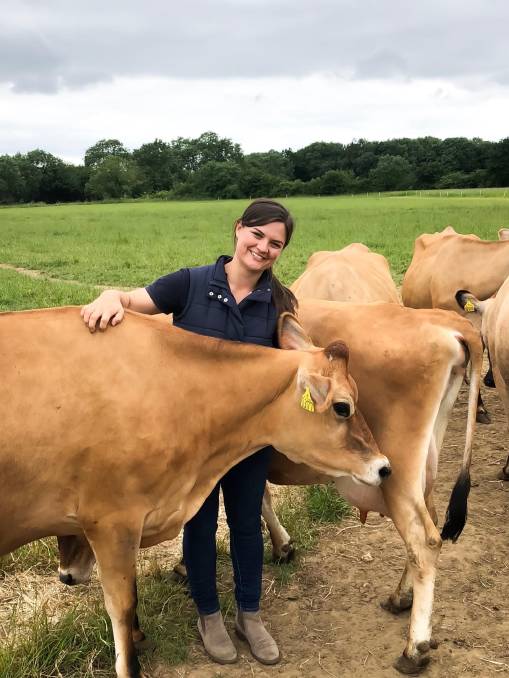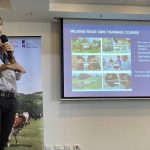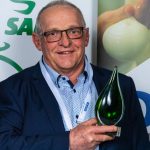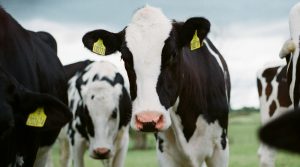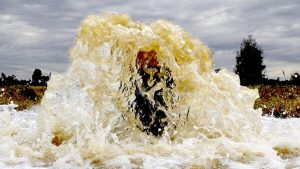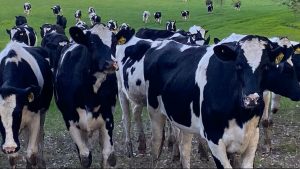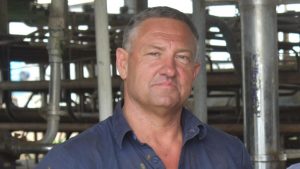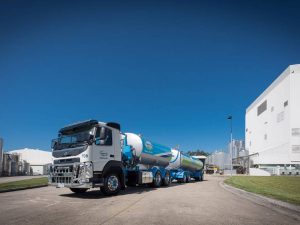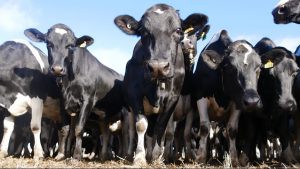
HW Greenham’s Dairy Beef program is an adaptation of its NEVER EVER system, adapted to suit the Australian dairy industry.
The program is being rolled out in Tasmania, with calves being sourced exclusively from the state for its first 12 months.
“Our Dairy Beef program has been developed in partnership with key domestic and international customers who are committed to a sustainable, alternative pathway for surplus calves,” Greenham Livestock Supply Chain manager Jessica Loughland said.
“Additionally though, when we look at what other countries have achieved in the dairy beef space – with good quality beef genetics – we believe there is huge potential for dairy beef to support the growth of our premium programs, and bolster our year-round supply,” she said.
“This program has the potential to become a profitable pathway long-term for everyone along the supply chain.”
Dairy Australia Animal Welfare project officer Sarah Bolton said the organisation was looking forward to seeing opportunities, offered by the program, coming to fruition.
“It is vital that the dairy industry can access sustainable options for managing surplus calves that not only align with community expectations, but also benefit the farm business and animal welfare,” Dr Bolton said.
“Opportunities where players along the supply chain can work together helps improve confidence in return on investment, allowing for optimised production and ultimately ensures the quality of the end product.”
Both the NEVER EVER and Dairy Beef programs adhere to Greenham’s standards requiring whole-of-life traceability, 100 per cent grassfed and free-range, MSA eligibility, and free from antibiotics, GMOs and added hormones.
“The main differences between the two programs relate to the sale and rearing of calves, which usually occurs at a younger age than conventional beef cattle and estimated breeding values visibility to ensure cattle will meet customer requirements in a beef supply chain,” Ms Loughland said.
“When we look at what other countries have achieved in the dairy beef space – with good quality beef genetics – we believe there is huge potential for dairy beef to support the growth of our premium programs, and bolster the year-round supply of our high quality beef in premium global markets.”
Cattle must be at least 50 per cent British, Euro or Wagyu beef breeds.
Calves from any dairy cow breed will be accepted under the program.
“When it comes to genetics, our priority is finding the right combinations to support profitability at the dairy ( short gestation days and calving ease), while producing a high-quality beef animal that will grow,, yield, and provide a superior eating quality experience,” Ms Loughland said.
Circular Head Farms is one of the first in Tasmania to join the program.
Calf-rearer Sarah Coombe said Dairy Beef was a viable option for dairy farmers to use surplus bobby calves.
“To be able to put a beef bull over dairy cows solves that issue,” Ms Coombe said.
“This year, we are aiming to turn off 1000-1500 calves.
“It doesn’t affect milking quality, most dairy farmers can use sexed semen, so they are 90 per cent guaranteed to get a female.”
Those heifers could go back onto the farm, with beef bulls used for the remainder of the herd.
Ms Coombe said while she grew up on a dairy farm, she married a beef producer, who ran Angus.
“It’s a win-win scenario,” she said.
“At this stage, it’s only a few farms properties at Circular Head Farms, but next year a few more will come on board.
“Any beef calves, born to a dairy cow, come to me and I wean them.”
Once weaned, the calves were sold to Greenham, or to another producer, who took them through to kill weight.
“I think this is the best compromise of dairy and beef coming together.”
“Circular Head Farms really wants to support the dairy beef program, it’s a great way to help the industry.”
Ms Coombe said there were very few changes, required from a normal dairy operation.
“We are increasing our pen sizes, so they have more space to run around in and feeding twice a day, just things that typical dairy farmers wouldn’t do,” she said.
The North West Community Market Association will hold an Agricultural Forum, in Smithton on Friday, September 17, where Greenham livestock manager Graeme Pretty will discuss the project.
